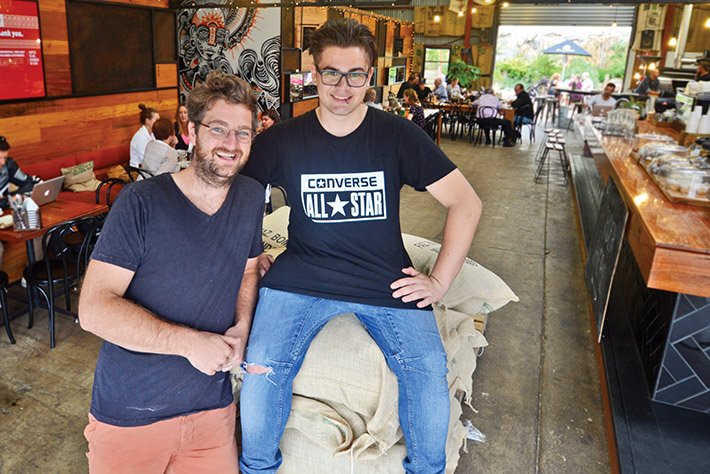
COFFEE has become such an integral part of our lives that many people can’t do without it.
But the influx of cafes has put a lot of pressure on specialty coffee roasters, as an increasing number of consumers insist on specialty products.
“The biggest issue has been finding highly trained roasters or baristas capable of meeting expectations,” Sam Keck, who runs Commonfolk Coffee Company, a wholesale coffee roaster and cafe in Mornington said.
“Bizarrely, there is still no roasting or barista apprenticeship.”
The absence of any formal training in the coffee arts was brought home hard to Leigh Williams who, at 16, dropped out of high school to pursue his passion for coffee.
On finding out that there was no field of study – course or training – he called Commonfolk, in Progress St, to ask whether the business could develop an internship for him.
“This got us thinking and, together with my director of coffee, Ryan Toleman, we decided to put together a roasting internship coupled with paid work that would basically train Leigh to become a coffee professional,” Mr Keck said.
The internship is structured so that part of Leigh’s work involves learning practical skills, such as roasting and coffee preparation, and also training in green bean evaluation, importing, quality control, account management and business.
“After completing the internship we expect Leigh to have all the skills required to work as a coffee professional, whether it’s roasting, working as a barista, or owning his own establishment,” Mr Keck said.
“To legitimise the internship he will also aim to successfully complete his Q-Grader certificate – the coffee equivalent of a sommelier certificate.”
Leigh describes coffee-making as an art form.
“People appreciate the work that goes into making a cup,” Leigh said.
Now part of a “big and growing industry”, he works two days a week with Mr Toleman, learning how to roast, blend and taste coffee, and three days at the counter making coffee for customers, all the while learning all about texture, milk and extraction – what percentage (by weight) of the coffee grounds are dissolved in the water, or how much of the coffee in the brewer ends up in the cup.
“I’m still learning the basics. But I am going to go right into it. I am really interested,” said Leigh, who began in the coffee trade at a McDonald’s cafe bar.
“That was good training and I learned how to make coffee. Then I thought I would like to go further and contacted Commonfolk.”
Mr Keck said he wanted enlarge the training program through the charity Give to Live.
The program would focus on providing 16-18 year olds with specialty coffee training so they can get jobs in other small businesses.
“It will provide them with training material they can take with them, real time experience on the Commonfolk bar, and a think tank of other young coffee professionals with who they can interact. The program will be sponsored by small business, although we are exploring government grants as we speak,” Mr Keck said.
“There isn’t anybody else looking to provide this sort of training, or looking to run a program that can teach young people about the coffee industry.”
Meanwhile, Leigh’s making coffee and loving it. His favourite brew: “Espresso, because it offers more flavours.”

